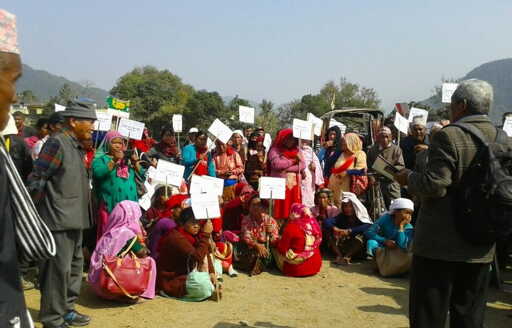Nepal has long relied on hydropower projects to meet most of its energy needs, but recent complaints from Indigenous and local communities have cast a shadow over the development of some projects — particularly the Tanahu project. The project is being developed by Tanahu Hydropower Limited (THL), a subsidiary of the state-owned Nepal Electricity Authority (NEA). It’s expected to be completed next year in Gandaki province. But for many members of communities in the affected area, “none of our demands have been fulfilled to this day,” says Til Bahadur Thapa Magar, chair of local campaign group the Tanahu Hydropower Project’s Struggle Committee. Local communities and Indigenous peoples say the project was implemented without proper consultation and failed to respect their rights to land, territory, and free, prior and informed consent (FPIC). In 2023, U.S.-based human rights watchdog Accountability Counsel documented a series of 16 complaints against hydropower projects in Nepal, many with funding from international institutions such as the Asian Development Bank (ADB), European Investment Bank (EIB) and World Bank. These projects, including the Tanahu project, which is funded by the ADB and EIB, have been accused of failing to meet their due diligence requirements during the approval process. “Even though these projects have records of not fully adhering to environmental and social compliance and respecting Indigenous and community people’s rights and decisions, they [international development banks] keep supporting more and more projects,” said Sutharee Wannasiri, a communications associate at the Accountability Counsel. A Magar local affected by the Tanahu…This article was originally published on Mongabay
From Conservation news via this RSS feed


